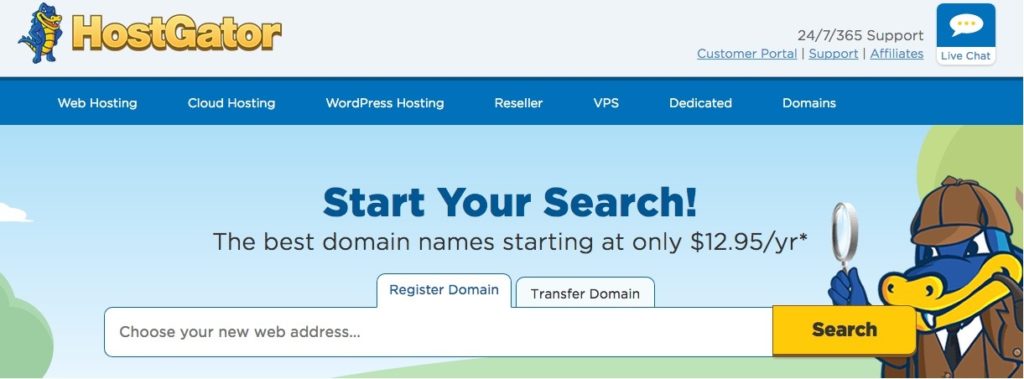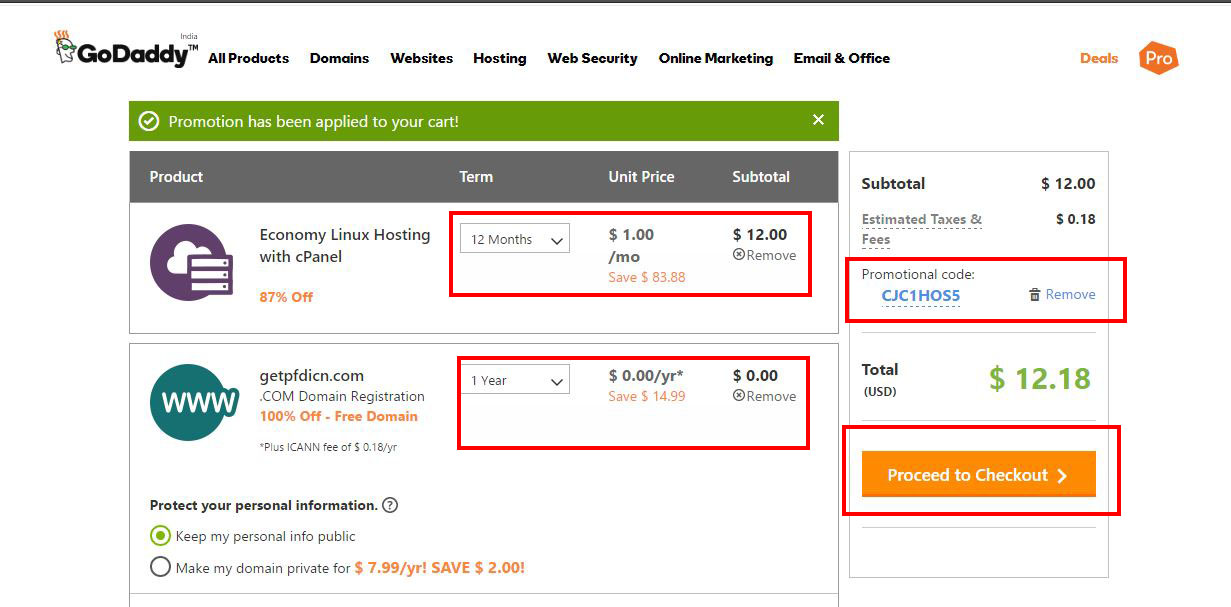HostGator Domain Search is your one-stop shop for finding the perfect domain name for your website. This powerful tool simplifies the process of finding available domain names, suggesting creative alternatives, and guiding you through the registration process.
Whether you’re a seasoned web developer or a first-time website owner, HostGator Domain Search empowers you to choose a domain name that reflects your brand, resonates with your target audience, and contributes to your online success.
Domain Name Suggestions

HostGator’s domain name search tool is a valuable resource for finding the perfect domain name for your website or business. It provides a wide range of suggestions based on your input, helping you choose a name that is both memorable and relevant to your brand.
Domain Name Suggestion Criteria
HostGator uses a variety of criteria to generate domain name suggestions. These include:
- s: The tool analyzes the s you enter and suggests domain names that incorporate those terms. For example, if you enter “photography,” the tool might suggest domains like “photography.com” or “bestphotography.com.”
- Availability: HostGator ensures that all suggested domain names are available for registration. This eliminates the frustration of finding a great name that is already taken.
- Relevance: The tool prioritizes suggestions that are relevant to your industry or niche. For example, if you are searching for a domain name for a restaurant, the tool might suggest names like “italianrestaurant.com” or “localcafe.com.”
- Memorability: HostGator aims to suggest domain names that are easy to remember and pronounce. This is crucial for brand recognition and customer recall.
- Brandability: The tool considers the potential for a domain name to be used as a strong brand identifier. It suggests names that are unique, memorable, and appropriate for your business.
Types of Domain Suggestions
The domain name suggestions provided by HostGator can be categorized into several types:
| Type | Characteristics | Examples |
|---|---|---|
| Exact Match | Domain names that exactly match the s entered. | “photography.com”, “restaurant.com” |
| Close Match | Domain names that closely resemble the s entered, often using variations or synonyms. | “bestphotography.com”, “localcafe.com” |
| Descriptive | Domain names that describe the website’s content or purpose. | “photographytips.com”, “fooddelivery.com” |
| Branded | Domain names that are unique and memorable, often incorporating a brand name or slogan. | “yourbrand.com”, “slogantheme.com” |
| Creative | Domain names that are imaginative and unconventional, using puns, acronyms, or other creative techniques. | “clickandcapture.com”, “foodiehub.com” |
Domain Registration Process
Registering a domain name is the first step in establishing your online presence. It’s like reserving your spot on the internet, giving you a unique address for your website or online service. HostGator makes this process simple and straightforward.
HostGator Domain Registration Process
HostGator’s domain registration process is user-friendly and efficient. Here’s a step-by-step guide:
- Visit HostGator’s website and click on the “Domains” tab.
- Enter the desired domain name in the search bar and click “Search”.
- If the domain is available, you will be presented with various options for domain extensions (e.g., .com, .net, .org). Choose the extension that best suits your needs.
- Select the desired registration period (e.g., 1 year, 2 years, etc.).
- Review the pricing and add any optional features (e.g., domain privacy protection, website builder).
- Proceed to checkout and create an account if you don’t have one already.
- Enter your payment information and complete the purchase.
- Once the payment is processed, your domain will be registered and you will receive a confirmation email.
Comparison with Other Domain Registrars
HostGator’s domain registration process is comparable to other popular registrars like GoDaddy, Namecheap, and Google Domains. All these providers offer a similar range of domain extensions, registration periods, and pricing options. However, HostGator’s user interface is generally considered to be more intuitive and streamlined.
HostGator’s domain registration process is known for its simplicity and ease of use, making it a good choice for both beginners and experienced users.
Domain Name Availability and Competition
Securing the perfect domain name is crucial for your website’s success. It’s not just about finding a catchy name, but also considering its availability and the level of competition in the market.
Domain Name Availability
Domain name availability directly impacts your website’s success. If your desired domain name is already taken, you’ll need to get creative or consider alternatives. A taken domain name can hinder your brand recognition and make it harder for potential customers to find you.
Researching Existing Websites with Similar Domain Names
Before settling on a domain name, it’s essential to research existing websites with similar names. This helps you understand the competitive landscape and assess the potential for success.
- Analyze website traffic: Use tools like SimilarWeb or SEMrush to estimate the website’s traffic and its ranking in search engine results pages (SERPs). This gives you insights into the website’s popularity and its ability to attract visitors.
- Examine website content: Review the website’s content to understand its target audience, the products or services offered, and its overall message. This helps you assess the website’s strengths and weaknesses and determine if it aligns with your own goals.
- Evaluate website design and user experience: Assess the website’s design and user experience to understand its overall effectiveness. This helps you identify potential areas for improvement and consider how your website could stand out from the competition.
Choosing Domain Names in Competitive Markets
When facing a competitive market, choosing a domain name requires careful consideration.
- Consider using s: Incorporating relevant s in your domain name can help improve your website’s visibility in search engine results. However, ensure the s are natural and don’t sound forced or overly promotional.
- Explore alternative domain extensions: While “.com” is the most popular domain extension, other options like “.net”, “.org”, or even industry-specific extensions (e.g., “.shop”, “.tech”) can be available and potentially more effective.
- Get creative with your name: Think outside the box and come up with a unique and memorable domain name that stands out from the competition. Consider using a catchy phrase, a play on words, or a creative combination of letters and numbers.
Domain Name Disputes and Resolution: Hostgator Domain Search

Domain name disputes can arise when two or more parties claim ownership or rights to a particular domain name. These disputes can be complex and involve various legal and technical aspects. Understanding the potential for domain name disputes and the mechanisms for resolution is crucial for both domain name registrants and those seeking to acquire domain names.
Domain Name Registrar’s Role in Dispute Resolution
Domain name registrars play a significant role in resolving domain name disputes. They act as intermediaries between the registrant and the domain name system (DNS), providing a platform for domain name registration and management. In the event of a dispute, registrars are often involved in the initial stages of the resolution process.
- Uniform Domain-Name Dispute-Resolution Policy (UDRP): The UDRP is a standardized process for resolving disputes related to domain names. It is administered by the Internet Corporation for Assigned Names and Numbers (ICANN), which is responsible for overseeing the DNS. Domain name registrars are required to comply with the UDRP and its procedures.
- Dispute Resolution Services: Domain name registrars typically offer dispute resolution services, which can include mediation, arbitration, and court proceedings. These services provide a neutral platform for resolving disputes between parties.
- Transfer of Domain Names: In cases where a dispute is resolved in favor of one party, the registrar may be responsible for transferring the domain name to the rightful owner. This involves updating the DNS records to reflect the new ownership.
Common Domain Name Dispute Scenarios
Domain name disputes can arise in various situations. Here are some common scenarios:
- Trademark Infringement: A party may register a domain name that is identical or confusingly similar to a registered trademark. This can lead to a dispute under the UDRP or other legal frameworks.
- Cybersquatting: A party may register a domain name that is similar to a well-known brand or individual’s name, with the intention of selling it for a profit. This practice is considered illegal in many jurisdictions.
- Typosquatting: A party may register domain names that are similar to existing domain names, often with slight misspellings. This can lead to users being redirected to unintended websites.
- Domain Name Hijacking: A party may gain unauthorized access to a domain name, potentially changing its ownership or redirecting traffic to a different website.
- Domain Name Theft: A party may fraudulently obtain ownership of a domain name, typically by impersonating the rightful owner or exploiting security vulnerabilities.
Dispute Resolution Process, Hostgator domain search
The resolution process for domain name disputes can vary depending on the specific circumstances. The UDRP provides a standardized framework for resolving disputes related to trademark infringement and cybersquatting. The process typically involves the following steps:
- Filing a Complaint: The party alleging infringement or cybersquatting files a complaint with an accredited dispute resolution provider. The complaint must include specific details about the domain name in question and the alleged infringement or cybersquatting.
- Response by the Respondent: The party who registered the domain name has the opportunity to respond to the complaint within a specified timeframe. They may choose to contest the allegations or agree to transfer the domain name.
- Decision by the Panel: A panel of experts reviews the complaint, response, and any supporting evidence. The panel then issues a decision, which can include transferring the domain name to the complainant, dismissing the complaint, or ordering further proceedings.
- Enforcement: The registrar is responsible for enforcing the panel’s decision. This may involve transferring the domain name to the complainant or taking other appropriate actions.
Alternatives to the UDRP
While the UDRP is a widely used mechanism for resolving domain name disputes, there are other options available:
- Court Proceedings: Parties can pursue legal action in court to resolve domain name disputes. This option is typically more expensive and time-consuming than the UDRP.
- Mediation: Parties can choose to engage in mediation, which involves a neutral third party facilitating discussions and reaching a mutually agreeable solution.
- Negotiation: Parties can attempt to resolve the dispute through direct negotiations. This approach can be more flexible and less formal than other options.
End of Discussion
Navigating the world of domain names can be overwhelming, but HostGator Domain Search streamlines the process, offering valuable insights and tools to help you make informed decisions. With its user-friendly interface, comprehensive search capabilities, and helpful suggestions, HostGator Domain Search equips you with the resources you need to secure a memorable and effective domain name for your website.
Finding the perfect domain name is a crucial step in building your online presence. HostGator’s domain search tool makes it easy to find available options that fit your brand. If you’re looking for a powerful and free office suite to create documents, presentations, and spreadsheets, you can check out wps office free download.
Once you’ve secured your domain, you can focus on creating high-quality content to attract visitors to your website.




